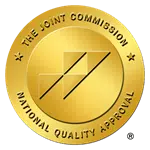Substance Abuse Is A Major Problem
Addiction is a complex condition that affects millions of people worldwide. According to a report by SAMHSA, among people aged 12 or older in 2021, 61.2 million people (or 21.9 percent of the population) used illicit drugs in the past year. The most commonly used illicit drug was marijuana, which 52.5 million people used.
This estimate includes both alcohol and drug use disorders, and it encompasses a wide range of substances, including but not limited to alcohol, marijuana, prescription medications, cocaine, heroin, and methamphetamine.
The number of individuals struggling with addiction can fluctuate over time due to various factors such as changes in substance availability, societal attitudes, and treatment accessibility.
Key Facts and Trends on Substance Abuse
1. Addiction is a brain disease: Addiction is now recognized as a chronic brain disorder. It affects the brain’s reward system, leading to compulsive drug use despite negative consequences.
2. Substance abuse affects all demographics: Addiction does not discriminate based on age, gender, or socioeconomic status. It can affect anyone, regardless of their background.
3. Prescription drug misuse is a growing problem: The misuse of prescription drugs, such as opioids and benzodiazepines, has become a significant public health concern. It can lead to addiction and overdose deaths.
4. Alcohol addiction is prevalent: Alcohol addiction is one of the most common types of addiction globally. Excessive alcohol consumption can lead to various health problems and social issues.
5. Co-occurring disorders are common: Many individuals with addiction also have co-occurring mental health disorders, such as depression, anxiety, or PTSD. These dual diagnoses require specialized treatment approaches.
6. Addiction can be both physical and psychological: Addiction involves both physical and psychological dependence. Physical dependence results in withdrawal symptoms when the substance is stopped, while psychological dependence refers to the emotional reliance on the substance.
7. Treatment is effective: Although addiction is a chronic condition, it is treatable. Evidence-based treatments, including behavioral therapies, counseling, and medication, can help individuals recover from addiction and lead fulfilling lives.
8. Relapse is part of the recovery process: Relapse is relatively common in addiction recovery, and it should not be seen as a failure. It is essential to view relapse as an opportunity to learn from mistakes and adjust the treatment plan.
9. Support systems are crucial: Having a strong support system, including family, friends, and support groups, can significantly improve an individual’s chances of recovery. Social support plays a vital role in maintaining sobriety.
10. Prevention is key: Education and prevention efforts are essential in reducing the prevalence of addiction. Early intervention, addressing risk factors, and promoting healthy coping mechanisms can help prevent substance abuse.
Help Is Available
Addiction is a complex issue, and these facts provide a general understanding. If you or someone you know is struggling with addiction, it is recommended to seek professional help from healthcare providers or addiction specialists.
Sources
Substance Abuse and Mental Health Services Administration (SAMHSA). 2020. Key Substance Use and Mental Health Indicators in the United States: Results from the 2019 National Survey on Drug Use and Health (HHS Publication No. PEP20-07-01-001, NSDUH Series H-55).
National Institute on Drug Abuse (NIDA). 2020. Substance Use and SUDs in the United States: Know the Facts.



















